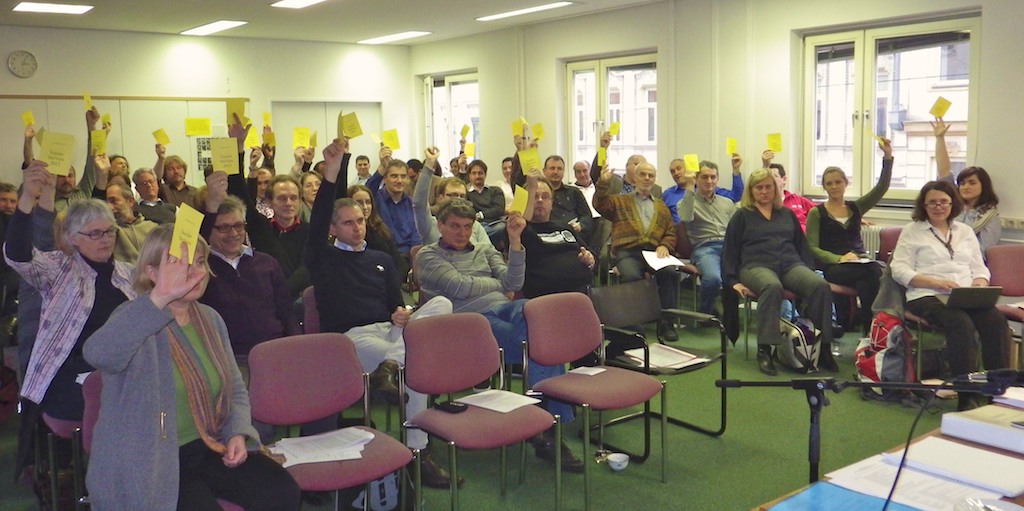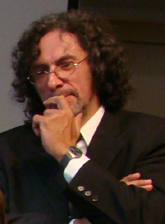“Free Churches in Austria” close to recognition?
“Free Churches in Austria” close to recognition?
On Sunday, January 20, Austrian national television ORF broadcast a report about the attempts of Austrian evangelicals to gain recognition as State-Recognized Religious Society. For many years, various unions of free churches, including Baptists, Pentecostals and the Association of Evangelical Churches of Austria have attempted to achieve state recognition, up to now without success. This should change now: under the title of “Freikirchen in Oesterreich” (Free Churches in Austria) five associations of free churches will jointly file for recognition in the next few days.
 Currently, there are 14 state-recognized churches and religious societies in Austria. Free Churches in Austria, a joint venture of the Association of Evangelical Churches, the Baptist Union, Elaia Christian Churches, Mennonites and Pentecostals (in alphabetical order) may soon be number 15.
Currently, there are 14 state-recognized churches and religious societies in Austria. Free Churches in Austria, a joint venture of the Association of Evangelical Churches, the Baptist Union, Elaia Christian Churches, Mennonites and Pentecostals (in alphabetical order) may soon be number 15.
Each of these 5 unions or associations currently has the status of Registered Religious Community (“eingetragene religioese Bekenntnisgemeinschaft”), a kind of preliminary stage for recognition as a church.
Up to now, recognition as churches of the individual associations of free churches has been prevented by their low number of members. A membership of 0.2 % of the total population of Austria, i.e. approx. 17,000 persons, is required for becoming a recognized church or religious society. This requirement is the main reason for the five associations of free churches joining forces.
 Despite joint recognition each of the five denominations will retain its identity. During the discussions held between the leaderships of the different unions a basis of confidence and a sense of unity has grown, going far beyond merely legal aspects. “We have realized that we have a lot in common in the essence and that we differ only in nuances”, said Walter Klimt (on the photo), general secretary of the Austrian Baptist Union in the interview with “Orientierung”, the weekly religion magazine of the Austrian national television, stating that differences were discussed openly, that common ground has been found. The biggest difference to be overcome was the difference in doctrine and practice between Pentecostals and the charismatic Elaia church on the one hand and the rest of evangelicals on the other. However, Reinhard Kummer, president of the Mennonite Free Church stated that by now this is mainly a problem of the older generation. “Among the young folks these differences hardly exist in practice”, he stated.
Despite joint recognition each of the five denominations will retain its identity. During the discussions held between the leaderships of the different unions a basis of confidence and a sense of unity has grown, going far beyond merely legal aspects. “We have realized that we have a lot in common in the essence and that we differ only in nuances”, said Walter Klimt (on the photo), general secretary of the Austrian Baptist Union in the interview with “Orientierung”, the weekly religion magazine of the Austrian national television, stating that differences were discussed openly, that common ground has been found. The biggest difference to be overcome was the difference in doctrine and practice between Pentecostals and the charismatic Elaia church on the one hand and the rest of evangelicals on the other. However, Reinhard Kummer, president of the Mennonite Free Church stated that by now this is mainly a problem of the older generation. “Among the young folks these differences hardly exist in practice”, he stated.
Despite the existing differences in doctrine and practice the five unions of free churches have agreed on a joint “constitution” which will soon be submitted to the Religious Affairs Office (“Kultusamt”), a department of the Austrian Ministry of Education. This “Constitution of the Free Churches in Austria” underscores what the free churches have in common but states at the same time that it is intended to safeguard the “diversity, spiritual wealth, tradition and history of different Christian free churches in Austria”.
The Constitution states that the free churches profess Jesus Christ as the Lord and redeemer of the world according to the Holy Bible, the divine inspiration of the Holy Bible, its complete reliability and supreme authority in all questions of faith and life”. Apart from that, the Constitution emphasizes three particular points of the statement of faith of free churches: the personal decision to believe followed by baptism of believers, independence of the local church, and the separation of church and state.
Support from mainstream denominations
The “big churches” in Austria have voiced support for the free churches’ quest for recognition. Cardinal Christoph Schoenborn, the Roman Catholic archbishop of Vienna, said in an interview with the Austrian broadcasting corporation’s Religion programme that evangelicals are the fastest growing group of Christians and as such “a very strong reality” which other Christians have to recognize. Support from the Lutheran Church is even stronger. The lawyer representing the free churches before the Religious Affairs Office is Peter Kroemer who is also the President of the Synod of the Lutheran Church in Austria.
An “extraordinary” problem
The free churches have to prove they have a certain number of members, but their understanding of membership is quite different from that of the “big” churches. Children who have not yet been baptised, and persons sharing the faith and participating in the life of a church without formal membership are listed as “extraordinary members” in the statistics of free churches. The Religious Affairs Office will have to decide on how to deal with these “extraordinary” members and how to check the membership numbers of free churches.
Report by Michael Weiss, Religion ORF.at published on January 20, 2013: http://religion.orf.at/stories/2567859/
Slightly shortened English version: Religious Liberty Commission of the Austrian Evangelical Alliance
Photos:
- Dec 1, 2012. The Baptist delegates holding their balloting about the new "FREIKIRCHE IN ÖSTERREICH" constitution
- Walter Klimt, General Secretary of the Baptist Union of Austria